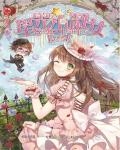Chapter 158 Long-Term and Short-Term Strategies
The Yuan Dynasty paid great attention to "roots".
"Genjiao" was a common term used by the Yuan Dynasty, meaning "family background." They maintained strict restrictions on family background, with some positions and titles ineligible unless possessing a strong genjiao. This is why, despite his significant contributions, Kuyuk Timur was discriminated against by Yuan officials.
The Yuan Dynasty, which emphasized roots, was just like the Han Dynasty, which emphasized "aristocratic families" from the Two Jin Dynasties to the early Tang Dynasty, and needed to compile a "list of aristocratic families". The official collections also had a rating of the "roots" of Mongolian nobles.
Chen Biao frowned and drank strong tea. He spent a lot of energy memorizing the difficult list and even learned Mongolian and Uighur for this purpose.
Through the "Root List", Chen Biao barely grasped the current situation of the Mongolian tribes on the grassland, and learned that the status of the "Golden Family" in Mongolia was not unattainable, and many grassland nobles were eyeing the position of "Mongolian King".
Although they had an ancestral precept that only members of the "Golden Family" could inherit the Mongol Khanate, there was a method called "holding the emperor hostage to control the princes." Moreover, there were also particularly unruly nobles who wanted to challenge the status of the "Golden Family", such as the Oirat nobles.
Even within the "Golden Family", the lineage of Kublai Khan's younger brother Ariq Böke had been enemies of Kublai Khan's lineage for generations, and had always been eyeing the Khan throne of Kublai Khan's lineage.
Zhu Yuanzhang drove the Yuan Dynasty back to the grassland, but Ariq Böke's lineage and the Oirat nobles would never let go of the declining Yuan Dynasty royal family.
"Both the Alibuge clan and the Oirat nobles are extremely resistant to Sinicization. They remain nomadic, following the flow of water and grass, and when they run out of money and food, they head south to plunder," Chen Biao said. "According to the caravan's intelligence, not only have the Oirat moved eastward, but the Alibuge clan has also begun fighting the remnant Yuan emperor and crown prince."
Chang Yuchun clenched his fists. "Once Alibuga's lineage defeats the remnant Yuan emperor and the crown prince, will they head south?!"
Chen Biao nodded. "I think so. Moreover, they are not marching south to capture cities and territories, but simply to plunder. This is actually more dangerous to the Ming Dynasty than the remnants of the Yuan Dynasty."
Zhu Wenzheng's mind didn't turn around: "Why?"
Li Wenzhong rubbed his temples, frowning as he explained, "If we capture cities and territories, we'll have them. Our war with them will be just like the war in the Central Plains; we'll know exactly where to fight. If the remnants of the Yuan Dynasty return and completely abandon the Han Chinese nomadic people, we'll be like the previous dynasties. They'll profit from attacking us, but we'll just be wasting our time fighting them."
Seeing that Zhu Wenzheng still didn't understand, Li Wenzhong gave an example: "Just treat them as thieves. There are only thieves for a thousand days, but no one can guard against thieves for a thousand days. They are the thieves, and we are the ones guarding against thieves."
Zhu Wenzheng scratched his hair hard: "It's so complicated! Can't we go out and find the thieves' den?"
Li Wenzhong was at a loss for words: "They say they are thieves with no fixed place to stay. Where can we find them?"
Zhu Wenzheng said, "I heard Biaoer reading history books. Didn't the Han Wudi Emperor defeat the thieves?"
Chen Biao said, "Brother Zheng, you only heard that Emperor Wu of Han drove out the Xiongnu, but do you know how he did it? Haven't you read a book in a long time?"
Zhu Wenzheng raised his head and said, "You know, your brother Zheng is now the commander-in-chief guarding the border. I'm very busy."
Even Chen Ying, who was thinking about something, couldn't help but complain: "You are so shameless."
Chen Biao said, "It seems I'll have to resume checking your reading. When they lived in Mongolian tents and could migrate at any time, it was easy to defeat them, but difficult to find them, and even harder to pursue them. At the height of his power, Emperor Wu of Han assembled 180,000 cavalrymen, led by two renowned generals, Wei Qing and Huo Qubing. They combed the grasslands like a comb before finally driving them away."
Zhu Wenzheng said: "I can also..."
"But you," Chen Biao scolded. "Brother Zheng, not only have you not read in ages, you've even thrown arithmetic at me? 180,000 cavalrymen consumed all the money and grain accumulated during the reigns of Emperor Wen and Emperor Jing, and the plundering nearly starved a generation of people to death. We don't have the wealth of the reigns of Emperor Wen and Emperor Jing. Even if we starve all the people today, we still can't afford to support so many cavalrymen."
Zhu Wenzhen: “…” As the commander-in-chief, his head began to ache when he talked about food and wages.
The four current and future famous generals present began to feel a dull pain in their heads.
Chen Biao said, "Furthermore, although Emperor Wu of Han drove out the Xiongnu, it was difficult for him to establish rule over the grasslands under the conditions at the time. When the Han cavalry retreated, new nomadic peoples entered."
In the past, it was the Huns, then the Turks, now it has become the Tatars, and in the future it will be the Oirat... The Chinese agricultural civilization has a unique natural environment that fosters civilization, but it also has a "hell mode" start that is unimaginable for other civilizations - above the Yellow River and Yangtze River basins, there is the most vast grassland, which can give birth to the most powerful nomadic people.
In terms of warfare, agricultural civilizations have a natural disadvantage compared to nomadic civilizations. This disadvantage is the "thief for a thousand days" and "guard against thieves for a thousand days."
When a nomadic civilization fought a war, it not only consumed the population of poor herdsmen, but even if it failed, the thieves would not escape empty-handed; when an agricultural civilization arrived at the vast grassland, it spent a lot of manpower and material resources to defeat the nomadic cavalry, but did not gain a penny - during the war , the herdsmen drove cattle and sheep, and transported the gold, silver and jewelry of the grassland nobles, and no one knew where they had gone.
When the Ming Dynasty fought against the Yuan Dynasty, it was essentially the same way that agricultural civilizations fought - conquering cities and seizing territories; when the Yuan Dynasty became Mongolia, the Ming Dynasty's war with Mongolia became like guarding its own door to block thieves. It changed from gaining rewards as long as it won a battle to having to watch others consume it.
This is the situation Chen Biao is facing now.
As a key frontier town, Peking was the primary target for plunder by the grassland tribes who had completely abandoned their Han Chinese ways. Preparations for war would begin as soon as autumn arrived, next year at the latest.
After Chen Biao explained the serious situation in Peking one by one, the four generals present all sat in their chairs, holding their foreheads with their hands and looking worried.
Chang Yuchun asked, "Biao'er, have you informed His Majesty of this?"
Chen Biao said, "Of course. I sent the memorial to Yingtian the day before yesterday. Your Majesty should be able to see it soon."
Zhu Wenzheng yelled, startling several people: "I don't want to think about it anymore, Biao'er, I'll do whatever you say!"
Chen Biao: "...Can you please not give up thinking? Don't push such a big thing onto me alone!"
Zhu Wenzheng covered his ears: "I can't think of it."
Chen Biao's mouth twitched slightly.
After a long silence, Chen Ying said, "Biao'er, can't we build cities and cultivate farmland on the grassland? If the grassland is filled with cities and farmland like in the Central Plains, their cavalry won't be able to come and go freely."
Zhu Wenzheng immediately put down his hands that were covering his ears and said, "This is good!"
Li Wenzhong frowned. "I think so too. But such a simple solution has never been implemented by so many wise rulers and wise ministers in history. There must be difficulties that we cannot imagine."
Chang Yuchun was very experienced in farming and immediately said, "Perhaps the grasslands are not suitable for farming. From the south to the north, I have found that some lands lack water and fertilizer. If you force farming, it will quickly turn into a desert where even grass won't grow."
Chen Biao's eyes lit up and he gave Chang Yuchun a thumbs up: "Uncle Chang is really amazing. He immediately pointed out one of the most crucial reasons."
The people who built the Great Wall didn't know that the Great Wall happened to almost coincide with the 400 mm isohyet, which is exactly the dividing line between semi-humid and semi-arid zones.
Even if farming can be done in semi-arid areas, under current technological conditions, the output is less than the input, not to mention the problem of desertification.
In fact, a similar situation had already occurred in the military farms of Peking. The yield of a family's land might not even be enough to feed them if the weather was not good or the rain was not good.
Chen Ying asked again, "Why not cultivate the land and graze livestock with them?"
Zhu Wenzheng slapped his thigh again and said, "You're right!"
Chen Biao nodded. "That's indeed one solution. We can establish military strongholds in areas with the most abundant grass and water, and turn military settlements into military farms. But there's still a problem."
Chen Ying thought for a moment and said, "If the military settlements can be self-sufficient, then it will be easier to solve the problem of the garrison being too heavy for its own use?"
Chen Biao sighed, "That's right. In fact, the three of you are all crowded in Beiping. Beiping is almost a place where the four of us brothers have the final say. I am panicking inside. Fortunately, I am young. Otherwise, even if the emperor trusts me, someone in the court will probably impeach me for having my own army and threatening the throne. Ah, Uncle Chang, don't laugh, I am serious!"
Chang Yuchun coughed dryly and tried to keep the corners of his mouth flat: "I'm not laughing. Biao'er, you're right."
When you grow up, Biaoer, you will indeed "threaten" the throne.
Chen Ying asked, "Can rotating the generals solve this problem?"
Chen Biao said, "Even if we rotate our generals, the vast territory is difficult to manage. The fundamental solution to the grassland problem lies in developing technology, building smoother and cheaper roads, and inventing more convenient transportation than horse-drawn carriages. I'm very pleased that you've thought of this."
Zhu Wenzheng frowned: "Hey, Biao'er, you haven't already figured out what to do, are you just testing us?"
Chen Biao raised his hands in surrender. "Even if I come up with something on my own, I still need to listen to your opinions. I'm not testing you. Don't you think it's more efficient for me to think hard on my own than for you to come up with suggestions and then I'll criticize you?"
Four people: "..."
Chang Yuchun suddenly had an extremely rebellious idea.
Chen Biao is indeed the lord’s biological son!
Zhu Wenzhen was so angry that he clenched his fists.
Chen Biao hid behind Chen Ying and said confidently, "Besides, it's Brother Zhong, Brother Ying, and Uncle Chang who are using their brains. Brother Zheng, who gave up thinking, has no right to criticize me."
"Bah!" Zhu Wenzheng said, "Who said I gave up thinking! I also thought of a solution!"
Chen Biao said disdainfully: "What can you think of with that brain of yours?"
Zhu Wenzheng sneered: "What do you all mean by talking about the future? Does it have anything to do with solving Beiping's current predicament? My method can immediately solve Beiping's impending harassment dilemma!"
Chen Biao continued with disdain: "Really? I don't believe it."
Zhu Wenzheng said, "Isn't it just stealing? Everyone can do that. Haven't we in Peking taken in many impoverished Mongolian soldiers who refused to return to the grasslands? They must know where the Mongols hope to spend the winter. I will lead a group of soldiers to rob them. We won't kill them, but we will steal their cattle and sheep. If we can drive them back, we will drive them back. If we can't, we will eat them immediately or make them into meat and furs, and drive the herdsmen north."
Chen Biao immediately frowned at Zhu Wenzhen's brutal and immoral behavior.
But then he said, "Okay. I'll raise money and food for you. But I can only provide 1,000 light cavalry with food for ten days at most."
Zhu Wenzheng said, "Ten days will be enough. Driving the nomads north will surely cause them to riot. At least for the next two years, they won't have time to plunder us. Unfortunately, this method can only be used once."
Zhu Wenzhen's strategy was to catch the Mongolian nobles, who did not think that the Ming Dynasty would "attack the border grass", off guard.
When the first strategy worked, they would place spies near Peking. As long as there was any sign of this, the herdsmen would leave the "Ten Suns", the sphere of influence where the Peking cavalry could operate.
Given the herdsmen’s familiarity with the grassland, the Peking cavalry would be disappointed every time.
As for eliminating the spies, that was impossible. A cavalry attack would require a lot of manpower and material resources for logistical preparations , and anyone living near Peking would have seen it.
When everyone was thinking about how to completely solve the grassland problem, Zhu Wenzhen, relying on his general's intuition, directly proposed a solution to the current problem, which made Li Wenzhong and Chen Ying a little frustrated.
Chang Yuchun looked at Zhu Wenzhen with new respect.
It seems that the lord's praise of his own nephew is not forced, Zhu Wenzhen is indeed a potential famous general.
Chen Biao and Zhu Wenzheng both had the power to "act first and report later" in Beiping. As long as Chen Biao could raise enough food and fodder on his own, he did not need to report to Yingtian first.
Chen Biao immediately mobilized money and food, and Zhu Wenzhen counted the cavalry, announcing to the outside world that they would "support" Gansu and Shanxi in suppressing the remaining Yuan soldiers who had become bandits.
On a sunny day, Zhu Wenzhen led a thousand light cavalry out of the city of Peking.
What followed was a nightmare for the grassland herders.
The closer to the 400mm rainfall line, the better the grassland growth, the more abundant the grass and water, and the most suitable for wintering. Because the grassland became the Lingbei Province of the Yuan Dynasty, the herders had become accustomed to migrating south for the winter.
And this winter, they faced the Ming Dynasty's cavalry.
Chen Biao knew how much tragedy this would cause, but he still agreed.
When Chen Biao wrote to his father, he complained to himself, "Actually, I could have thought of this, but I didn't want to think about it and refused to make this decision. That's why I called my brothers and Uncle Chang together to seek their opinions. I know this is cruel, so I can only let others make this decision, so that I will feel less guilty."
"I am so hypocritical and treacherous. But next time, I will continue to be hypocritical and treacherous. I know I am wrong but I refuse to change."
Zhu Yuanzhang received a report from Chen Biao through official channels saying that "the Wala are advancing eastward, and the grassland tribes may go north to plunder this year", and then he received a letter from Chen Biao to his biological father.
When Zhu Yuanzhang saw the previous memorial, he was furious and wished he could take up his sword and go to the grassland to kill people.
When he saw the last letter, his anger subsided and turned into deep heartache.
Zhu Yuanzhang thought of what Chen Biao had said when he refuted several great Confucian scholars in the court, "The emperor cannot be a moral sage."
Zhu Yuanzhang took a deep breath and said, "Call all civil and military officials and hold a grand court!"
The border cannot be guarded by Biaoer alone, and Biaoer cannot bear all the responsibility. He wants to build more border fortresses in the north.
Wenying's strategy hit the nail on the head for Zhu Yuanzhang. If farming is not possible, then herding should be done.
As for having their own troops, at least he and Biao'er didn't have to worry about this problem during their time. As for future generations who couldn't control the border towns, they would find a solution themselves.
As Biaoer said, each generation can only do its own thing based on the current actual situation.
The Heavenly Book also says that all things are constantly changing, and the responses of future generations must also constantly change.
Zhu Yuanzhang already had the policy he needed in mind.
Zhu Wenzhen, Li Wenzhong, Chen Ying, and his several sons can be named Kings of Sai, led by the crown prince, and vassal kings guard the border.
The vassal kings have no territory, only border towns. If you want territory, go to the grasslands and fight for it yourself!
Just like the Zhou Dynasty's feudal lords, they were only given the right to explore new lands. The lands conquered by the princes who had the right to explore new lands became their vassal states!
The consequence of this is that in a few hundred years, we will probably have another "Warring States" chaos.
But just as Qin Shi Huang unified the country after the Warring States Period, someone would surely emerge in the late Ming Dynasty's "Warring States Period" to reunify the territory and create an even greater chaos.
The only question is whether his descendants can maintain this policy until the "princes" have devoured the grassland tribes .
…
It was not until early December that the first snow fell in Beijing.
The Lingbei Province of the remnant Yuan Dynasty was already covered with heavy snow.
The reunited Emperor and Prince of the Yuan Dynasty, father and son, held hands and looked at each other with tears in their eyes. They reconciled and became united.
The conflict between the emperor and the crown prince that Chen Biao had anticipated never occurred. This was because Chen Biao, unfamiliar with the grasslands at the time, still believed they were ruled by the "Golden Family." Once there, the emperor and the crown prince would continue to struggle for power.
But although Chen Biao made a mistake in his prediction, he accidentally caused the same consequence.
It would have been difficult for the remnant Yuan emperor and the crown prince to compete with the Mongolian nobles on the grassland alone. By working together, they were finally able to barely consolidate the position of the "Golden Family" on the grassland and prevent it from being sidelined by other nobles.
However, when the Oirat Mongols advanced eastward, the remaining Yuan emperor and the crown prince became a little panicked.
They all knew that the Oirat had always had ambitions, but they were defeated by their ancestors. Now the Oirat was going to seize their position as the Mongol king?
When the remnant Yuan emperor and the crown prince decided to march south immediately to divert the attention of the Mongolian nobles and shift the conflict to the Ming Dynasty, they heard that the Ming Dynasty had actually looted the cattle and sheep of the grassland nobles, and many herdsmen ran to the vicinity of the royal tent.
These herders had lost their cattle and sheep and could only rely on the nobles for help. Naturally, the nobles refused to help, and the starving herders and small tribal leaders caused great unrest.






